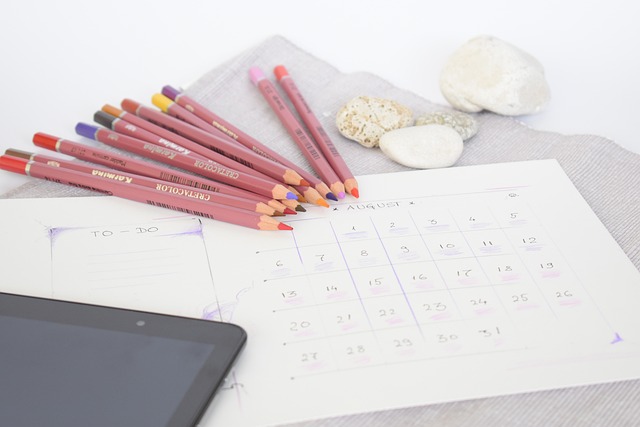Monthly Planners vs. Daily Planners: Which One is Right for You?
In the realm of personal organization and time management, planners are indispensable tools that cater to diverse planning needs and preferences. The choice between monthly and daily planners is more than a matter of scheduling—it reflects one’s lifestyle, priorities, and the complexity of their tasks. This article provides a comprehensive comparison of monthly vs. daily planners, helping you determine which one aligns best with your planning style and needs.

Monthly Planners: An Overview
Key Characteristics: Monthly planners offer a bird’s-eye view of the entire month, with each page or spread dedicated to a single month’s calendar. This format is ideal for long-term planning, tracking significant events, and setting monthly goals.
Benefits:
- Big-Picture Planning: Facilitates the alignment of daily actions with longer-term objectives, making it easier to prioritize major deadlines and appointments.
- Simplified Scheduling: With all events visible at a glance, monthly planners are excellent for avoiding scheduling conflicts and managing monthly commitments efficiently.
- Enhanced Flexibility: They allow for easy adjustments and reorganization of plans without the clutter of daily details.
Best For: Individuals with a stable routine or those who prefer a less detailed planning approach. Monthly planners suit professionals focusing on deadlines and projects, students tracking assignments and exams, or anyone managing monthly goals and activities.
Daily Planners: An Overview
Key Characteristics: Daily planners provide a page or more for each day, offering ample space for detailed scheduling, task lists, and notes. This format is tailored for granular, hour-by-hour planning and tracking of daily tasks.
Benefits:
- Detailed Task Management: Perfect for breaking down complex tasks into manageable actions, making it easier to track progress on a day-to-day basis.
- Focus on Prioritization: The detailed layout helps in prioritizing daily tasks, ensuring critical activities are addressed promptly.
- Encourages Reflection: Daily pages offer space for jotting down thoughts, reflections, or gratitudes, supporting mental and emotional well-being.
Best For: Individuals with dynamic schedules, those who manage numerous or complex tasks daily, or anyone who benefits from detailed task breakdowns and time blocking.
Choosing a Planner: Factors to Consider
- Lifestyle and Schedule Complexity: Assess the stability and complexity of your routine. Do you juggle multiple tasks and appointments daily, or are your days generally predictable with key dates spread out over the month?
- Planning Style: Consider whether you thrive on detail and granularity or prefer a streamlined, overview-based approach to planning.
- Portability: Daily planners tend to be bulkier due to the space required for each day, whereas monthly planners can be more compact and travel-friendly.
- Goal Tracking and Reflection: If tracking progress towards goals and daily reflection are important to you, consider how each planner type accommodates these needs.
Conclusion
Both monthly and daily planners have distinct advantages, tailored to different planning needs and preferences. A monthly planner is likely your best bet if you’re focused on long-term goal tracking and prefer a less detailed scheduling approach. On the other hand, a daily planner is ideal for those with a busy schedule, requiring detailed task management and prioritization.
Ultimately, the right planner for you is one that fits seamlessly into your life, enhancing your productivity and helping you achieve both your short-term and long-term objectives. Consider your planning habits, lifestyle, and the complexity of your tasks to make an informed decision that will support your organizational needs effectively.
